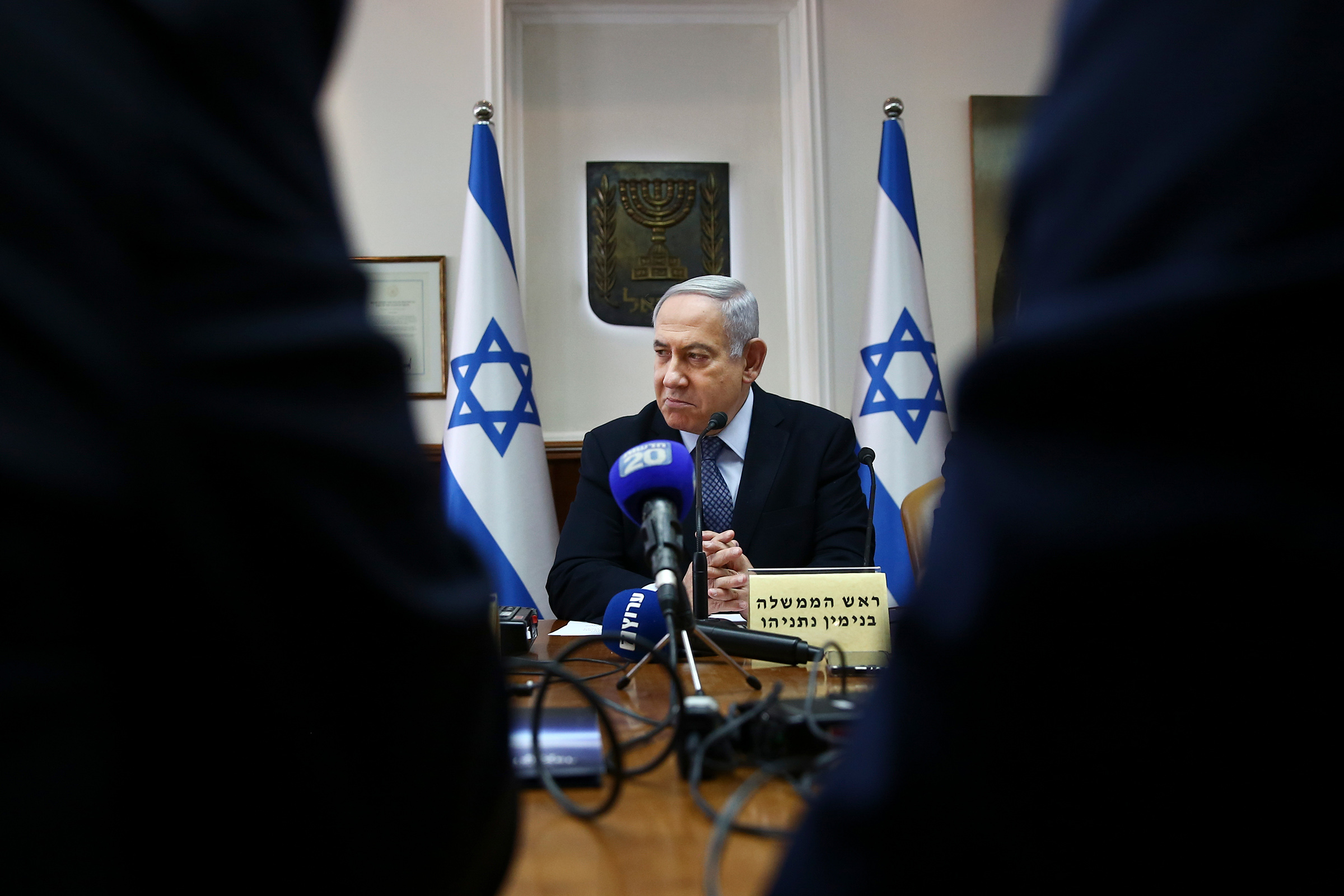
For years, Benjamin Netanyahu’s followers used to sing in political gatherings “Bibi King of Israel.” Now, it seems like the king might lose his crown. Israel’s longest-serving leader is indicted for bribery, fraud and breach of trust. Netanyahu becomes first sitting prime minister in Israel’s history to be charged with bribery. While Bibi called the decision “an attempted coup,” his political rivals are celebrating.
However, the Israeli people have no reason to celebrate. Even if Netanyahu goes, the environmental damage he caused is here to stay. During a twenty-year political career, oil tanker “Netanyahu” has docked in the center of the Israeli mainstream, pouring gallons of hate into our water.
Netanyahu’s reaction to the indictment decision was a wild attack against the Israeli law system. While a “witch hunt” is a common, legitimate, metaphor often used by politicians in his situation, Netanyahu didn’t stop with this expression. His accusation of an “attempt coup” could become a real threat to our democracy, when expressed by a sitting prime minister towards the law system. Not many were surprised by this choice of words. The PM’s reaction yesterday fit his entire career. As we look at the rise and fall of leaders, we usually assume that the fall of a leader symbolizes the end of his era. But that’s not necessarily true. A leader can leave the public sphere the way a child leaves the pool after pissing in it.
Over the course of two decades, Netanyahu has delegitimized major parts of Israeli society in general, and the Palestinian citizens of the country in particular. In 1995, Netanyahu fought against Prime Minister Rabin’s efforts to proceed with Oslo Peace Accords. As the head of the opposition, he didn’t shout incendiary messages to the crowd, but he did stand onstage facing a raving mob, surrounded by a chorus of voices shouting, “Rabin the traitor!” Rabin’s wife refused to shake Netanyahu’s hand at her husband’s funeral, later calling him “the architect of incitement.”
Rabin’s death gave a frightening demonstration to how fast hate-speech turns into action. But the anti-democratic pollution only grew wider, as did the delegitimization of vast numbers of the Israeli public. In his 1996 election campaign, Netanyahu used a new slogan: “Netanyahu—good for the Jews.” The campaign set up a clear dichotomy between “Israeliness” and “Jewishness,” dividing the citizens of the country into Jews and non-Jews. Anti-Arab propaganda became explicitly outspoken in the 2015 elections, when our prime minister warned his followers that “Arab voters are heading to the polling stations in droves.”
A few days after the 2015 elections, a White House warning on anti-Arab rhetoric in Israeli elections was published. After all, it’s not every day that a prime minister tries to cast doubt on the right to vote of 20% of his country’s population. After the U.S. denounced his video, the Israeli PM apologized, saying he had been misunderstood.
The delegitimizations of the Arab citizens was followed by attempts to create fake history. During his speech to the Zionist Congress in 2015, Netanyahu claimed that Hitler’s genocide was inspired by the Palestinian leader of Jerusalem at the time, Haj Amin Al-Husseini. His remarks were criticized by prominent Holocaust scholars, and he later corrected himself.
Where there is hate speech by political leaders, sooner or later there will be a hate crime by “extremists” or “loners.” On Netanyahu’s shift, there were quit a few. One of the most shocking was the murder of a 16-year-old boy, Abu Khdeir, as revenge for the kidnapping and murder of three Israeli teens. Netanyahu was one of the first to denounce the murder of the Palestinian boy – yet he also denounced the writers who dared to write a TV series about the case. Netanyahu recently called on Israelis to boycott the Keshet and HBO-produced TV drama Our Boys, calling it anti-Semitic. Death threats to the creators were soon to follow the PM’s statement.
But the peak of Netanyahu’s latest hate campaign was his call to put cameras in polling stations, doubting the integrity of Arab voters. Ironically, it was Netanyahu’s insult that got more Arab citizens to vote.
Even if he loses the trial over bribery, Netanyahu has already won: delegitimization of the Arab minority is no longer limited to the extreme right wing. Netanyahu’s rival, Avigdor Lieberman, now considered “central right,” has refused to even sit in a chair randomly allocated to him in the Parliament, as it was next to the head of the Arab party.
A big part of the election impasse paralyzing the country today is another product of minority hate: Netanyahu sticked with the extreme right-wing parties, and preferred these allies over Gantz’s offer to form a more central coalition. He also rejected the idea of a rotation government in which he will be the second to serve.
Quite a few cheers were heard last evening in Tel Aviv, when the indictment decision was first published. However, If we ever want to recover from twenty years of anti-democratic pollution, we have to first acknowledge the fact that our environment is polluted with hate. We have to purify our society from anti-democratic tendencies. It will take a long time, so the sooner we begin, the better.
More Must-Reads from TIME
- Cybersecurity Experts Are Sounding the Alarm on DOGE
- Meet the 2025 Women of the Year
- The Harsh Truth About Disability Inclusion
- Why Do More Young Adults Have Cancer?
- Colman Domingo Leads With Radical Love
- How to Get Better at Doing Things Alone
- Michelle Zauner Stares Down the Darkness
Contact us at letters@time.com